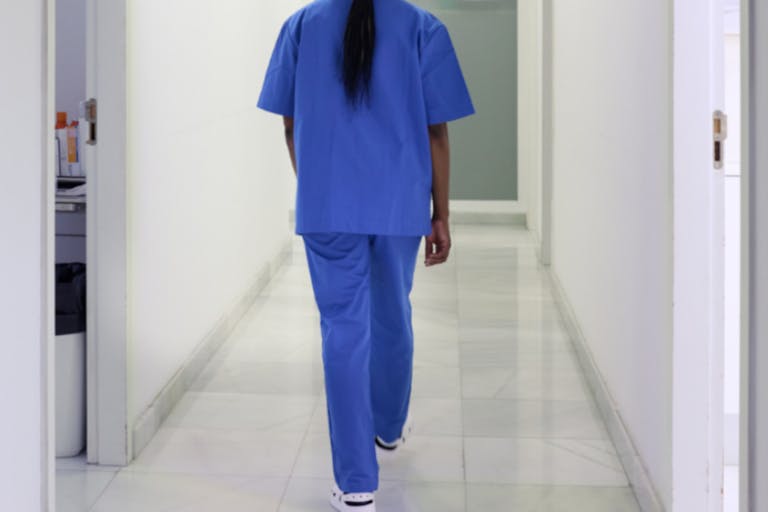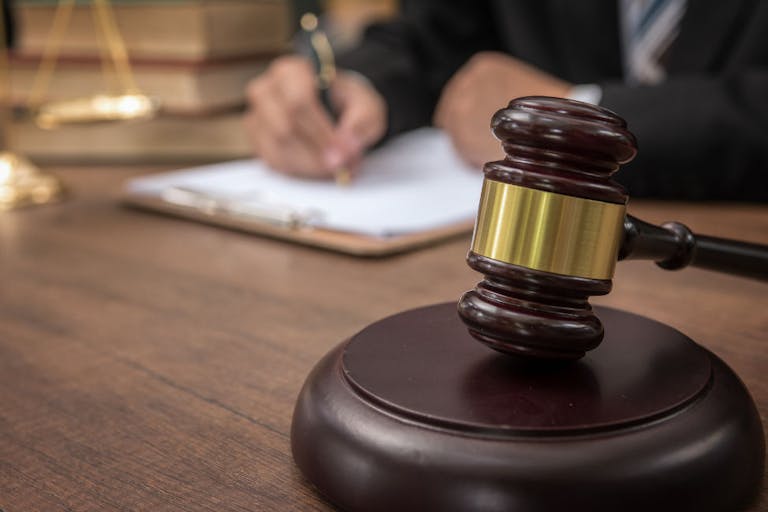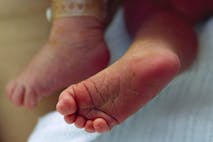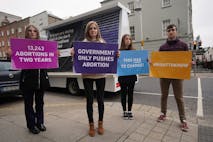
Appeals court upholds block on safety standards for Missouri abortion businesses
Bridget Sielicki
·We are urgently seeking 500 new Life Defenders (monthly supporters) before the end of October to help save babies from abortion 365 days a year. Your first gift as a Life Defender today will be DOUBLED. Click here to make your monthly commitment.

Indiana appeals court rules against Planned Parenthood
An Indiana appeals court has upheld a previous ruling dismissing a request from Planned Parenthood to expand exceptions to abortion. This ruling ensures that almost all preborn children are protected from abortion in the state.
Planned Parenthood and the ACLU filed a lawsuit asking for the law’s hospital-only requirement for abortions to be blocked, and for the state to expand health exceptions for abortions.
Currently, Indiana law permits abortion only in cases of rape and incest, if there is a “lethal fetal anomaly,” or in strict cases of medical necessity, though induced abortion (intentional killing) is not necessary for medical reasons.
A Monroe County judge denied Planned Parenthood’s request and the abortion chain appealed.
The Indiana Court of Appeals also dismissed the lawsuit, ruling that the law does not violate the state constitution.
Indiana Senate Bill 1 took effect in August of 2023, which protects most preborn children from abortion. The exceptions are children conceived in rape and incest (up to 10 weeks), children diagnosed with a “lethal fetal anomaly” (before 20 weeks), and “when reasonable medical judgment dictates that performing the abortion is necessary to prevent any serious health risk to the pregnant woman or to save the pregnant woman’s life.”
The ACLU and Planned Parenthood filed a lawsuit to have the health exceptions broadened and to remove the in-hospital-only requirement for abortions.
In September of 2024, Judge Kelsey Hanlon ruled against Planned Parenthood, pointing out that the only medical conditions that are not allowed to be used as an exception are mental illnesses.
“The court is not tasked with determining the wisdom of SB 1,” Hanlon said. “Rather, the court limits its analysis to whether SB 1 prevents patients from exercising a constitutional right to protect themselves against serious health risks by materially burdening access to abortions necessary to address that risk.”
She continued,“Plaintiffs have not shown an instance where an abortion is necessary to treat a serious health risk but would also fall outside of the health and life exception. Additionally, plaintiffs have not demonstrated that the hospital requirement is materially burdensome to constitutionally protected abortion access, nor that it fails rational basis review as to statutorily authorized (but not constitutionally protected) abortions.”
READ: If abortion empowers women, why deceptively market abortion pills as ‘period pills’?
Dear Reader,
Every day in America, more than 2,800 preborn babies lose their lives to abortion.
That number should break our hearts and move us to action.
Ending this tragedy requires daily commitment from people like you who refuse to stay silent.
Millions read Live Action News each month — imagine the impact if each of us took a stand for life 365 days a year.
Right now, we’re urgently seeking 500 new Life Defenders (monthly donors) to join us before the end of October. And thanks to a generous $250,000 matching grant, your first monthly gift will be DOUBLED to help save lives and build a culture that protects the preborn.
Will you become one of the 500 today? Click here now to become a Live Action Life Defender and have your first gift doubled.
Together, we can end abortion and create a future where every child is cherished and every mother is supported.
This week, the Indiana Court of Appeals agreed with Hanlon, ruling that the law is constitutional. The court disagreed that the requirement for abortions to be committed in a hospital is burdensome, pointing out that if abortions were actually medically necessary, it would only make sense to require the procedures to take place in a hospital, not an abortion facility.
“The circumstances argued by the medical-care providers here generally do not necessitate an abortion to treat those risks, because the constitutional right to an abortion requires an extreme medical scenario where the woman’s life or health is at serious risk, performing a constitutionally protected abortion in Indiana is a procedure that nearly always will be done in a hospital,” the court said. “Thus, the statutory Hospital Requirement is not a material burden on the constitutional right to an abortion.”
Furthermore, as the law already includes exceptions when a woman’s life or health is at risk, it does not violate the “life, liberty, and the pursuit of happiness” clause of the Indiana Constitution.
“This ruling is a resounding victory for life and the rule of law in Indiana,” Attorney General Todd Rokita said in a press release. “Our unwavering commitment to protecting the most vulnerable and upholding our state’s values will continue to guide this office. The overwhelming majority of Hoosiers stand with us in defending the sanctity of life and the health of women across our state.”
However, the battle to save preborn lives in Indiana is still ongoing; a separate, religious freedom case is still being considered.
Follow Live Action News on Facebook and Instagram for more pro-life news.
Live Action News is pro-life news and commentary from a pro-life perspective.
Contact editor@liveaction.org for questions, corrections, or if you are seeking permission to reprint any Live Action News content.
Guest Articles: To submit a guest article to Live Action News, email editor@liveaction.org with an attached Word document of 800-1000 words. Please also attach any photos relevant to your submission if applicable. If your submission is accepted for publication, you will be notified within three weeks. Guest articles are not compensated (see our Open License Agreement). Thank you for your interest in Live Action News!

Bridget Sielicki
·
Politics
Bridget Sielicki
·
Activism
Nancy Flanders
·
International
Leslie Wolfgang
·
International
Nancy Flanders
·
International
Angeline Tan
·
International
Cassy Cooke
·
Politics
Cassy Cooke
·
Human Interest
Cassy Cooke
·
International
Cassy Cooke
·
Pop Culture
Cassy Cooke
·